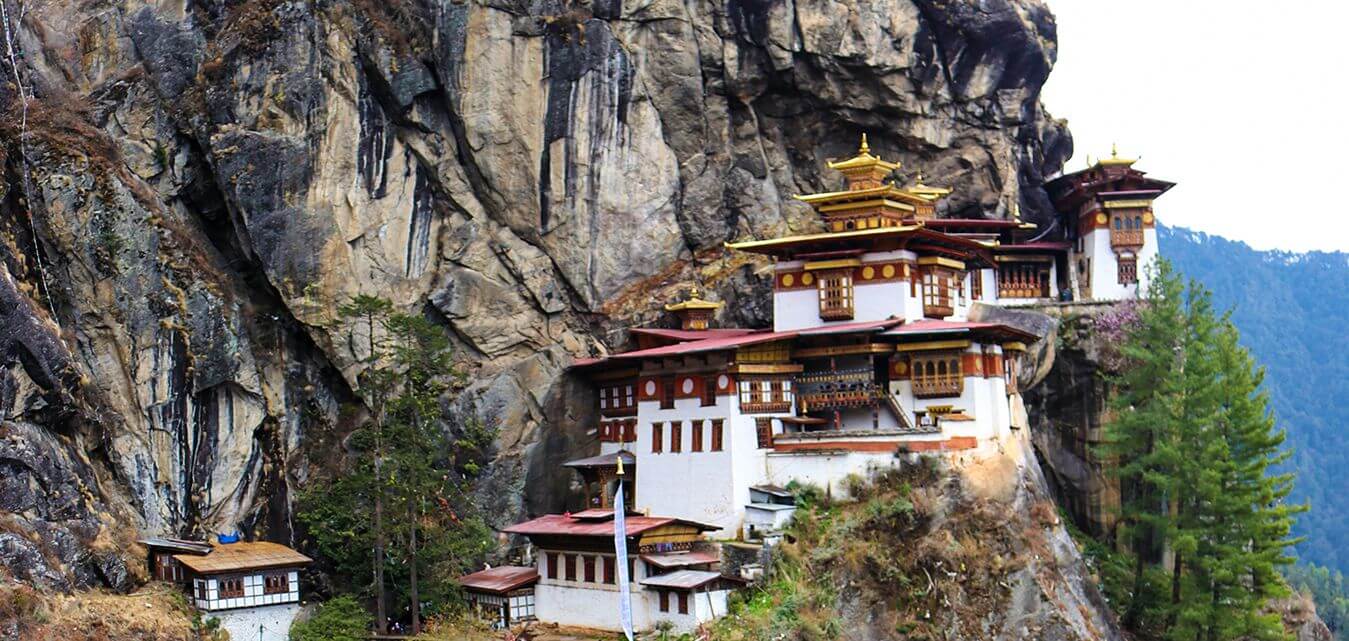Bhutan is a beautiful, green, serene, and picturesque nation situated in the lap of the eastern Himalayas in South Asia. It is sometimes referred to as the "Switzerland of Asia." Bhutan is one of the only two carbon-negative nations in the world, which clearly indicates the minimal commercialization of the nation and emphasis on preserving nature. 70% of Bhutan is forest cover. The fact that Bhutan is known as the happiest country in the world is not just a coincidence. This is a result of the profound lifestyle and culture established by the Fourth King of Bhutan, Jigme Singye Wangchuk.
The Bhutanese government does not work only to elevate the economy and achieve certain goals but also to keep its citizens happy. The focus of the government is not only on the material development of the nation but also on the spiritual well-being of its nationals. The growth and development of this nation are gauged not by Gross Domestic Product (GDP) but by Gross National Happiness (GNH). Bhutan is one of the happiest nations in the world. There is no hustle and bustle, and people lead a slow, laid-back, and happy life, but this, in no way, means that Bhutan is a regressive or underdeveloped nation. It is a progressive and socially secure nation that is keeping pace with globalization and has set many examples for the rest of the world to follow.
In Bhutan, dance and music are integral parts of life and culture. As we all know, both of these art forms have a deep healing effect on our minds and souls. This culture plays a major role in the physical and spiritual well-being of the Bhutanese. Great importance is attached to strong cultural values and traditions. They do not only live to find pleasure in life but also to find meaning in life by helping others and spreading love and happiness.
During a speech, the Fourth King famously said that "Gross National Happiness is more important than Gross Domestic Product." And that's what transformed the culture and lifestyle of Bhutan, resulting in global recognition for the country.
The measurement of population happiness is something that sets Bhutan apart from all other countries. This is accomplished through an extensive survey and the country's census. The survey takes into account several facets of the population's everyday life, which are categorized into four pillars and nine domains. What began as a simple idea has now become quite a sophisticated one.
The four pillars are psychological well-being, ecological diversity and resilience, good governance, and socio-economic development. Meanwhile, the nine domains are health, cultural diversity and resilience, community vitality, education, use of time, standard of living, living environment, emotional balance, and overall satisfaction.
Check out our Most Affordable Bhutan Trips!
Happiness is a way of life in Bhutan, and it centres around the idea that the collective is more important than an individual's well-being. According to the Bhutanese Government, Gross National Happiness mainly comprises the conservation of the environment, preservation of culture, good governance, and sustainable socio-economic development. GNH is not just about measuring economic progress but also moral progress.
Some might question whether Bhutan is indeed the happiest country. But it's currently the only country that endeavours to quantify and create a happiness index for the nation. The ultimate goal of Gross National Happiness and the GNH index is to demonstrate what the nation can offer its people and what the people can give back to the country.
In summary, Bhutan's culture and lifestyle are truly unique, with happiness as an integral part of the country's overall philosophy. Bhutan may not have the tallest buildings or the most modern technology, but what they do have is a society that values happiness and well-being above all else. It is a land of spiritual richness, natural beauty, and most importantly, happy people.
For more information, you can visit our site: Dream Riders
